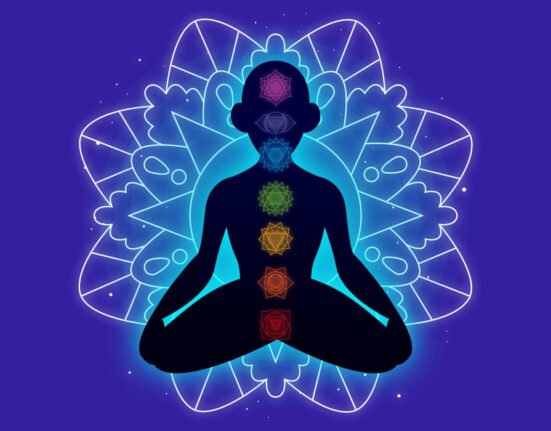Loss is a word most people fear and dislike, yet it is something we all experience in our lives in one way or another. Although the form in which it enters people’s lives may differ, what remains consistent is the pain, anguish, and fear that it causes. Whether it’s the loss of a relationship, finances, a pet, a loved one, a home, or good health, the mental and emotional setbacks that an individual experiences are immense. Recovering from these setbacks is not only challenging but also takes a lot of effort and courage. One way to make coping easier and smoother is to understand grief and its process.
Stages of Grief
In 1965, Elisabeth Kübler-Ross described five stages of grief, namely, denial, anger, bargaining, depression, and acceptance.
- Denial, the first stage, is a not-so-unusual reaction in the face of an overwhelming emotion like grief and includes pretending that the event (loss/change) did not occur. This helps the individual cope, survive the grief, and gain time to come to terms with reality.
- The next stage is anger; the quicker the anger is dissipated, the sooner an individual can begin to heal.
- Bargaining, the third stage, is where the individual falsely believes that they can negotiate and avoid grief.
- The fourth stage, depression, is an individual’s reaction to the emptiness they feel upon realizing the loved one is gone.
- The last stage is acceptance. It includes re-entering reality, putting new plans in place, exploring opportunities, and moving on.
Read More: Losing a Soulmate: A Journey of Grief, Loss and Keeping Hope
Understanding that Grief, Bereavement, and Mourning are Not Synonyms
Another important element in understanding grief is being able to differentiate it from words like bereavement and mourning, which are commonly mistakenly believed to be synonymous with grief. While grief focuses on the intrinsic and intrapsychic elements of loss, bereavement and mourning include the objective situations one faces after a loss and the external expression of loss, respectively.
Feelings
Grief over the loss of a loved one encompasses a broad range of emotions, behaviours, and cognitions that an individual commonly experiences after a loss. It typically involves feeling numb, being in disbelief, feeling anxious, etc.
- The most common feeling experienced by those who are grieving is sadness, which most people tend to block out of fear of its intensity.
- Numbness, a lack of feeling, is also commonly experienced by those grieving the loss of a loved one, as it prevents people from facing the overwhelming emotions associated with the loss.
- Another commonly experienced emotion is anger, which usually tends to come from a sense of frustration that one could do nothing to stop the loss from happening. This emotion becomes particularly risky when one turns the anger inward against themselves. One way people deal with this emotion is by blaming themselves, the deceased (in cases of the loss of a loved one), or someone else to convince themselves that the loss could have been prevented.
- Anxiety is another emotion experienced by those in grief and comes from two main sources, namely, attachment-related anxiety and personal death awareness.
- People who are grieving also tend to experience loneliness on two fronts, i.e., emotional and social. Although a healthy support system can help with social loneliness, it does not alleviate the emotional loneliness felt after the loss of a loved one.
- Grieving individuals may also experience fatigue, which can manifest itself in the form of listlessness and apathy.
- Helplessness is another feeling commonly experienced during the early stages of a loss and is strongly related to the locus of control; those with an external locus of control tend to feel more helpless due to a reduced sense of self-efficacy and control.
- Another common response to loss is yearning for the lost loved one. Its diminishing tends to indicate that the grieving may be coming to an end.
- In cases where the loved one was suffering from a lengthy or painful illness, people may also feel relief after their death. However, this sense of relief is more often than not accompanied by a sense of guilt.
Read More: The Therapist’s Journey through Grief
Cognition
The brain’s reaction to grief or the emotional trauma it may cause is similar to that toward stress.
- Over time, grief can affect various cognitive functions, including memory, attention, concentration, and decision-making.
- Due to the link between thinking and feeling, such thoughts/cognitions can cause intense but normal emotions of anxiety and/or sadness.
- Disbelief, confusion, forgetfulness, difficulty concentrating, preoccupation in the form of obsessive thoughts about the deceased and rumination, and hallucinations are cognitions associated with grief.
- Grief that lasts for weeks or months can put the body in a state of chronic stress, leading to an increase in heart rate, more flow of blood towards emotional and fear-related parts of the brain instead of higher-thinking parts, and the release of fight-or-flight hormones. Furthermore, such severe emotional responses tend to cause the brain to rewire its nerve connections and create new pathways, which grow stronger with each reminder of the loved one’s loss.
Behaviour
The behavioural changes associated with grief are not only some of the most unsettling symptoms but also considerably more difficult to understand and recognize.
- People who are in the early stages of grief commonly experience problems with sleep, which they may perceive as being due to various fears, such as flashbacks, visions, and nightmares.
- Furthermore, people who experience loss also tend to withdraw from others, even if for a short time, which comes from a lack of interest in the happenings of the world around them.
- Another prominent behavioural symptom of grief is a change in appetite. This may occur in the form of overeating or undereating. Due to the changes in eating patterns, individuals who are grieving tend to experience significant weight changes.
- Lastly, such individuals may also cry, sigh, engage in distracted or absent-minded behaviours, avoid reminders of the deceased, and exhibit restless hyperactivity.
Read More: Coping with Grief and Loss: A Guide for Young Adults
Sensations
Although easily overlooked, people with acute grief tend to experience certain physical sensations, such as tightness in the chest and/or throat, lethargy, oversensitivity to noise, a sense of depersonalization, breathlessness, an upset stomach, heart palpitations, nausea, and a dry mouth. Furthermore, through different biological mechanisms, grief tends to affect an individual’s cardiovascular (for example, in the form of broken-heart syndrome and high chances of heart stroke) and immune (for example, in the form of high inflammation levels) systems.
Coping with Grief
Although the pain of losing a loved one may feel unbearable and overwhelming, there are many ways one can overcome it.
- Reaching out to people who love and care for you is another way to heal the emotional wound caused by the loss of a loved one.
- One way to heal is to practice self-care. This includes taking care of one’s mind and body by exercising, getting enough sleep, meditating, etc.
- Another way to cope with grief is to maintain a routine. This would not only help in regulating emotions but also enable an individual to regain a sense of control.
- Dealing with one’s emotions instead of avoiding or resisting them is not an easy but healthy way of coping. The goal here should be to move one’s grief outward.
- Seeking professional help in case grief interferes with your ability to live your normal life or if grief lasts for a prolonged time is also a way to cope effectively and efficiently.













Leave feedback about this